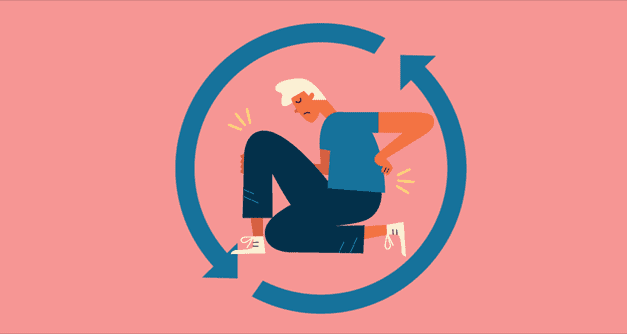Introduction to Pain Management
Pain, an inevitable part of the human experience, can significantly impact the quality of life. Understanding pain management is crucial for those seeking relief from various types of pain. Effective pain management goes beyond merely alleviating symptoms; it involves a comprehensive approach to improve overall well-being.
Types of Pain
Acute Pain
Acute pain, often due to injury or surgery, is a short-term sensation that serves as a warning signal for the body. Addressing acute pain promptly is essential to prevent it from becoming chronic.
Chronic Pain
Chronic pain persists over an extended period, impacting daily life and mental health. It requires a sustained and multifaceted approach for long-term relief.
Neuropathic Pain
Originating from nerve damage, neuropathic pain presents unique challenges. Specialized treatments are often necessary to manage this complex type of pain.
The Role of Pain Management Specialists
Healthcare professionals specializing in pain management are pivotal in helping individuals navigate their pain journey. A multidisciplinary approach involving doctors, physical therapists, and mental health experts ensures a holistic and personalized treatment plan.
Common Pain Management Techniques
Medications
Medications are a cornerstone of pain management, ranging from over-the-counter options to prescription drugs. Understanding the benefits and risks, especially with opioid medications, is crucial for informed decision-making.
Physical Therapy
Physical therapy focuses on enhancing mobility and function while reducing pain. Tailored exercises and therapeutic techniques contribute to a comprehensive pain management plan.
Alternative Therapies
Complementary approaches such as acupuncture, massage, and chiropractic care offer alternative avenues for pain relief. Integrating these therapies can enhance the overall effectiveness of pain management.
Benefits and Risks of Pain Medications
Navigating the realm of pain medications requires a nuanced understanding of opioids, non-opioid medications, and the delicate balance between achieving pain relief and managing potential side effects.
Non-Pharmacological Approaches to Pain Management
Exercise
When tailored to individual capabilities, physical activity contributes to pain management by improving strength, flexibility, and overall well-being.
Mind-Body Techniques
Mindfulness, meditation, and relaxation exercises help individuals develop coping mechanisms, reducing the impact of pain on mental health.
Cognitive-Behavioral Therapy
Addressing the psychological aspects of pain through therapy can lead to profound improvements in managing chronic conditions.
Interventional Pain Management Procedures
Invasive procedures, such as injections, nerve blocks, and, in some cases, surgery, offer targeted relief for specific pain conditions when conservative approaches prove insufficient.
Holistic Approaches to Pain Management
Considering the whole person, integrative medicine explores lifestyle changes, nutrition, and alternative therapies to foster a holistic approach to pain management.
Special Considerations in Pain Management
Pediatric Pain Management
Children experiencing pain require specialized care that acknowledges their unique needs and considerations.
Geriatric Pain Management
As individuals age, the approach to pain management may need to be adapted to account for factors such as comorbidities and medication interactions.
Palliative Care
Palliative care focuses on enhancing the quality of life for individuals with serious illnesses, addressing pain and other symptoms.
Technology in Pain Management
Innovations such as wearable devices, telemedicine, and pain-tracking apps empower individuals to participate in their pain management journey actively.
Challenges in Pain Management
Overcoming challenges such as the stigma surrounding pain, limited access to resources, and the need for individualized treatment plans is crucial for effective pain management.
The Future of Pain Management
Ongoing research and advancements in pain science pave the way for a future where pain management becomes increasingly personalized and effective.
Real-Life Stories of Successful Pain Management
Patient Testimonials
Hearing the experiences of others who have successfully managed their pain can inspire hope and provide valuable insights.
Overcoming Pain Challenges
Individuals sharing their journeys of overcoming significant pain challenges showcase the resilience of the human spirit.
Inspirational Journeys
Stories of transformation and rediscovery of joy after implementing effective pain management strategies highlight the positive outcomes possible.
Tips for Finding the Right Pain Management Plan
Communication with Healthcare Providers
Open and transparent communication with healthcare providers is essential for tailoring a pain management plan to individual needs.
Advocating for Oneself
Empowering individuals to actively participate in their care and advocate for their needs fosters a collaborative approach to pain management.
Seeking Second Opinions
In complex cases, seeking second opinions from specialists can provide additional perspectives and treatment options.
Conclusion
A holistic and individualized approach is key in pursuing effective pain management. By embracing a combination of medical, alternative, and technological interventions, individuals can navigate the path to relief and reclaim their lives from the clutches of pain.
Frequently Asked Questions (FAQs)
- How long does it take to see results from a pain management plan?
Results vary based on the individual and the chosen interventions. Some may experience relief within weeks, while others may require more time for significant improvements. - Are there natural remedies for pain management?
Several natural remedies, including herbal supplements, yoga, and dietary changes, can complement traditional pain management approaches. - What role does mental health play in pain management?
Mental health is integral to pain management. Addressing psychological aspects through therapies like cognitive-behavioral therapy can significantly impact overall well-being. - Can technology truly enhance pain management?
Yes, advancements in technology, such as wearable devices and telemedicine, empower individuals to engage in their pain management and track progress actively. - How can one advocate for better pain management within the healthcare system?
Advocacy involves open communication with healthcare providers, staying informed about treatment options, and, when necessary, seeking second opinions to ensure comprehensive care.

